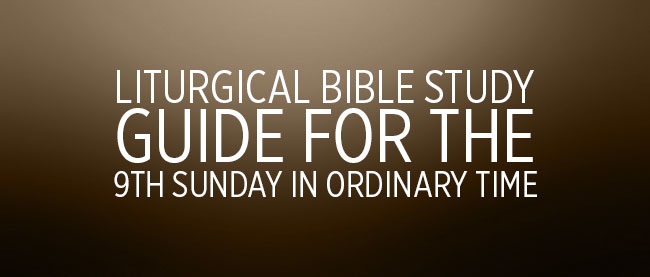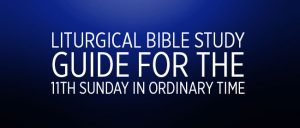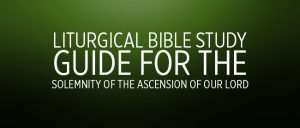1st Reading – Deuteronomy 11:18, 26-28, 32
The book of Deuteronomy is a book which, according to Hebrew tradition, was written by Moses for the laity; the book of Leviticus having been written for the Levites; the priests. The central focus of Deuteronomy is an understanding of the Law in terms of the Covenant which the Israelites have with God as His chosen people. This book not only gives the covenant in listing the blessings and curses associated with it, it also details the successes and failures of Israel’s checkered history in terms of fidelity and disregard. On the 1st Sunday in Lent (Cycle A) we hear of Jesus’ temptation in the desert and how He answers these temptations from the sections of Deuteronomy which tell how Israel failed the same temptations and what the correct response was.
2nd Reading – Romans 3:21-25, 28
Romans 3:21 begins a new section of the Letter to the Romans, a section which is a discourse on salvation and extends all the way to 8:29. This new section is in contrast to Romans 1:28 which describes the history of Israel and her inability to live up to the covenant relationship she had with God: “And since they did not see fit to acknowledge God, God handed them over to their undiscerning mind to do what is improper.”
Gospel – Matthew 7:21-27
Last week in our introduction to the gospel reading we learned that Matthew 6:19-34 and 7:1-27 is a collection of sayings from the life of Jesus. Those sayings which are contained in chapter 6 all have a common theme: singleness of purpose. The sayings in chapter 7 appear to all be detached from one another with no perceptible unity of theme. Matthew obviously considered these sayings to be basic and almost all of them find a parallel presentation in Luke. The themes which are addressed are: judging others (7:1-5); casting pearls before swine (7:6); prayer and its answer (7:7-11), the golden rule (7:12); the narrow gate (7:13-14); genuine good works (7:15-20); and our gospel for today: self deception (7:21-23) and hearers and doers (7:24-27).
Bible Study Guide from Fr. Cielo Almazan





